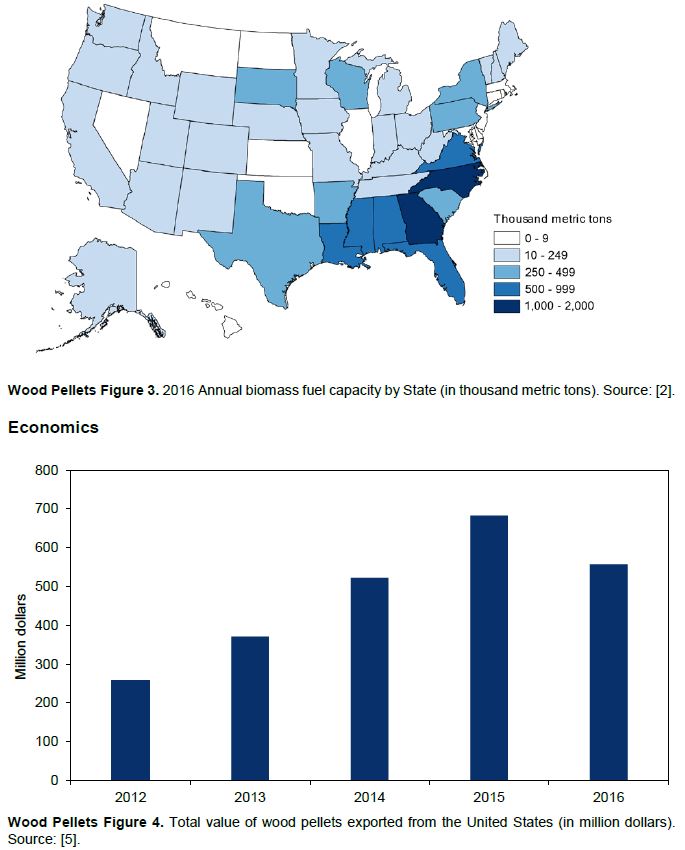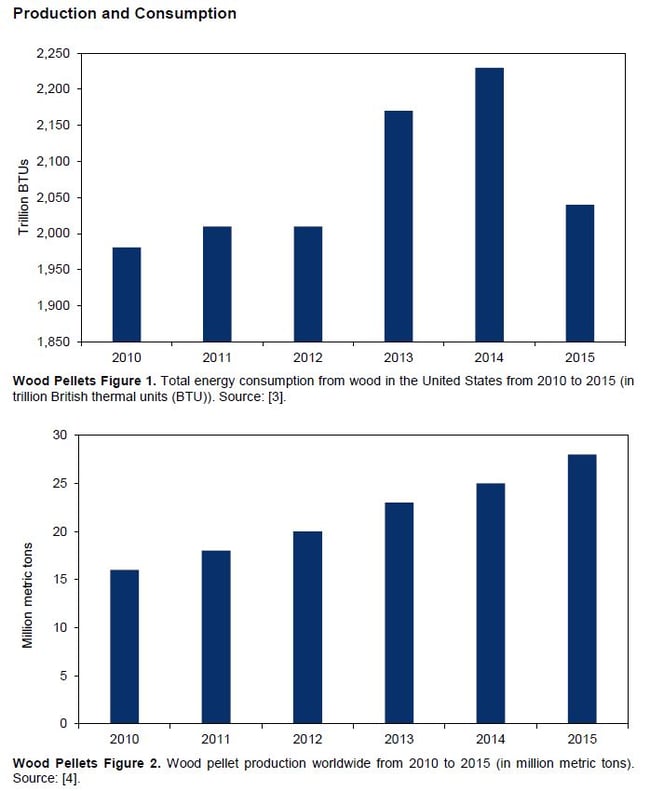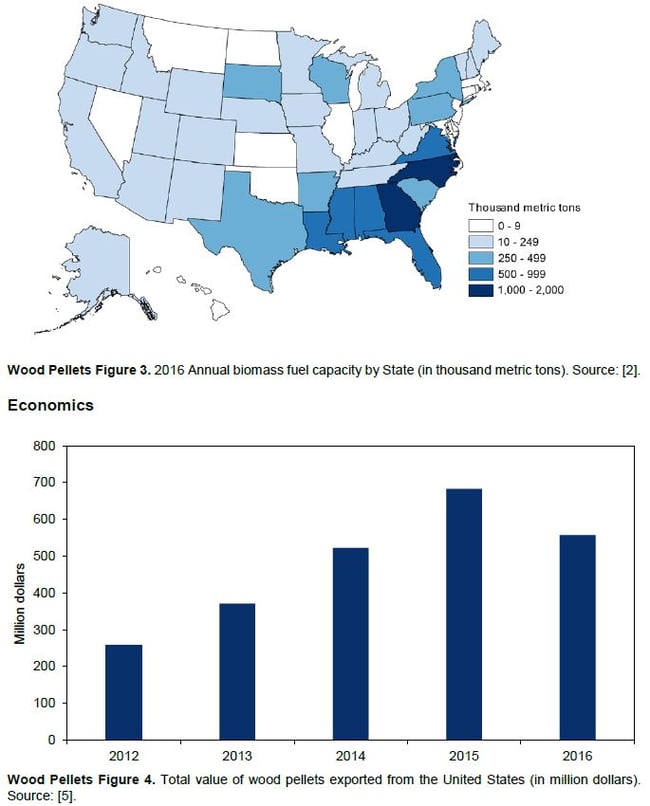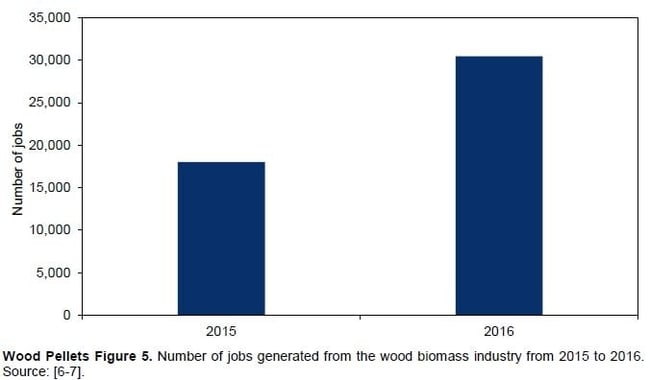2 min read
USDA Report Shows Economic Impact of Biobased Economy, Wood Pellet Demand
John Greene
:
April 5, 2018

The US Department of Agriculture (USDA) recently released a new report that analyzes economic growth and job creation from bioenergy, renewable chemicals and biobased products. The report, titled “Indicators of the U.S. Biobased Economy,” compares 2011 and 2016 data and demonstrates that biobased manufacturing and biobased products are increasingly important to the US economy.
The Executive Summary of the report notes that, “Through innovations in renewable energies and the emergence of a new generation of biobased products, the sectors that drive the biobased economy are providing job creation and economic growth.”
Highlighted changes between 2011 and 2016 data include:
Bioenergy
- Ethanol production in the United States surpassed 14.7 billion gallons in 2015. This compares to just 175 million in 1980.
- The number of ethanol plants in the United States continues to see modest growth, increasing to 199 plants in 2016 with 3 new facilities under construction. This accounts for over 270,000 American jobs.
- Biodiesel production reached 1.26 billion gallons in 2015 as compared to 343 million gallons in 2010.
- During the period of 2005 to 2012, soybean used for biodiesel increased from 0.67 billion pounds to 4.1 billion pounds.
Wood Pellets
The report includes a section dedicated to bioenergy derived from wood pellets, which are manufactured primarily in the US South and have become an important component of the bioenergy sector. “Driven by commitments by countries outside of the United States to meet greenhouse gas reduction goals in the electricity-generating sector, the United States has established itself as the largest exporter of wood pellets. The United States exported over 4.6 billion kilograms (kg) of wood pellets, which is the global leader by almost 3.0 billion kg over the second-largest exporter.”




Renewable Chemicals and Biobased Products
- The BioPreferred program catalogs a product as a biobased product if it derives from plants and other renewable agriculture, marine, and forestry materials, and does not include fuels, food or animal feed.
- The number of renewable chemicals and biobased products that are USDA “certified” as BioPreferred has rapidly increased from 1,800 in 2014 to 2,900 in 2016.
- It is estimated that the overall number of biobased products in the United States marketplace was greater than 40,000 in 2014, up from 17,000 in 2008.
- The number of jobs contributed to the United States economy by the US biobased products industry in 2014 was 4.22 million.
- The value-added contribution to the United States economy from the US biobased products industry in 2014 was $393 billion.
Brent Erickson, executive vice president of The Biotechnology Innovation Organization’s (BIO) Industrial & Environmental Section applauded the report, saying that, “The biobased economy is approaching a tipping point in its growth and maturation. The economic impact is evident.”
Erickson continued, “BIO calculates that the global economic value of the biobased economy—including industrial biotechnology, renewable chemicals and polymers, biofuels, enzymes and biobased materials—is $355.28 billion. Looking at the new USDA Indicators report and other sources, we estimate that the United States generates 58 percent of the global value of biobased manufacturing, or more than $205 billion. And that economic activity supports employment for 1.66 million U.S. workers.
The biobased economy continues to have a pronounced effect on employment and economic growth in the US due to continued interest in renewable energy and bio-products, and the technological advancements that will drive these sectors in the future. Erickson added that, “The growth of the biobased economy has been supported by good federal policy that strengthens the agricultural sector and rural America. For instance, Farm Bill energy title programs have compiled a record of success that deserves to be continued. We look forward to working with USDA and Congress to build on that success and reauthorize the programs.”





